WINTER 2023
We ❤️ Libraries
We don't think it's a stretch to say our libraries—and the librarians who run them—are the backbone of a free and functioning democracy.
- Story by Danielle Centoni
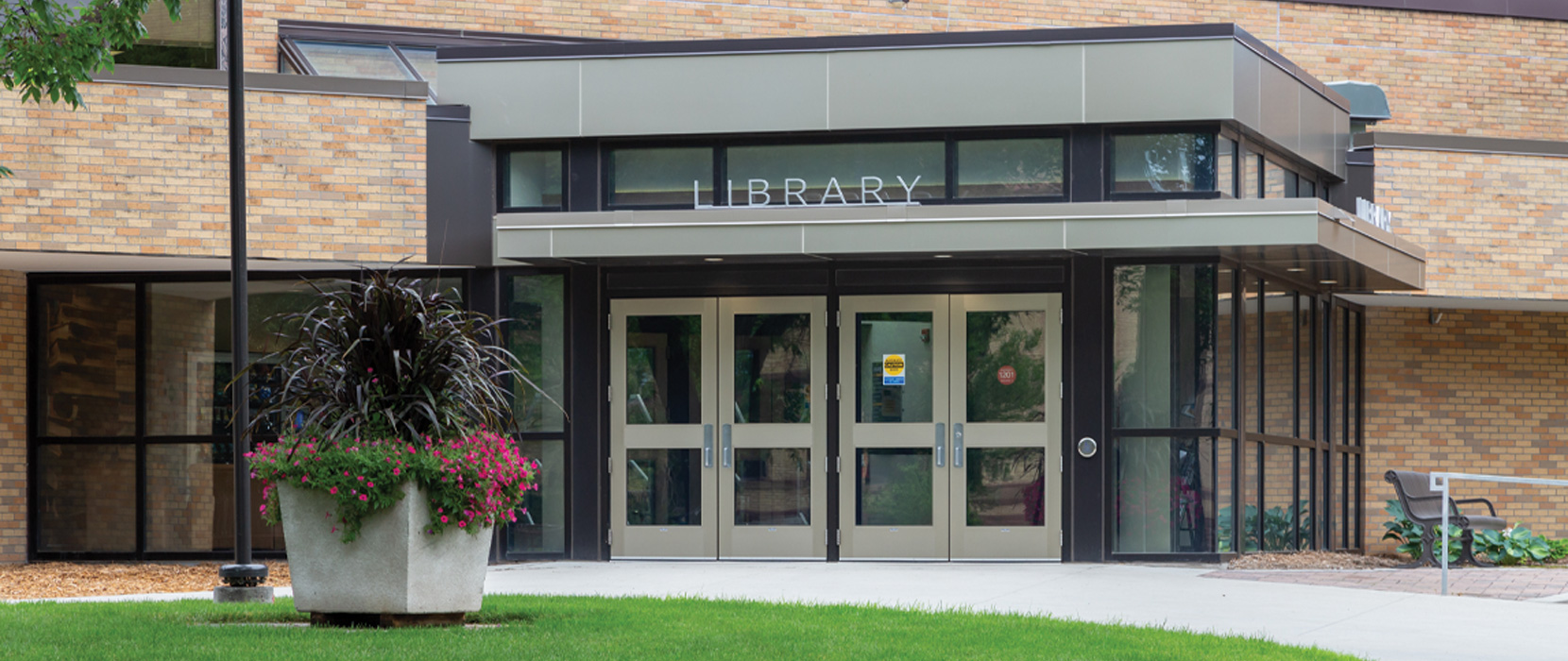
THE FIRST TIME Federico Martínez-García Jr. stepped foot in a university library he was almost thirty. It was just his third time visiting a library in his entire life, and the excursion followed the same pattern as before: he walked in and almost immediately walked out.
Martínez-García had immigrated to the US from Mexico in high school, and between language barriers and a lack of opportunities, libraries just seemed off-limits, places meant for other people. “When I transferred to University of Arizona, that was the first time I was formally introduced to a library, and it was overwhelming,” he says. “I was 29 years old when I started my undergraduate degree, and I’m first-generation. The library was so immense with all these desks lined up. Everyone started looking at me. I got intimidated and just left.”
But something big must have happened after that uncomfortable day in 1999, because as the new associate librarian and head of public services at University of Portland’s Clark Library, Martínez-García can now safely say he’s spent more hours in libraries than pretty much anywhere else. What was the momentous event? Turns out it was a little thing, a gesture. His roommates had encouraged him to go back—and when he did, a librarian sensed his hesitation and reached out.
“She said, ‘I was actually just like you. I felt the same,’” says Martínez-García. Suddenly he didn’t feel like an outsider anymore. She even offered him a job, and the rest is history. “When I first started working there, I was still thinking about what I wanted to be ‘when I grew up.’ I wanted to be a teacher. I wanted to be a priest. I wanted to be weatherman. I like learning and teaching people and I realized that working in a library is a lot of professions in one. I could be everything I wanted to be.”
He worked his way up, specializing in access services—all the backstage management of staff, circulation, and programs—earned his Masters in Library Science in 2014, and arrived at UP in March 2022. But even though a lot of his work is behind the scenes, Martínez-García makes a point to pay forward the lessons he learned that day years ago when he took a leap of faith and a librarian was there to catch him. “I walk around and say hello to students. Some are looking at me like, ‘Who is this crazy guy?’ but it’s just to create that connection. I like to be that person who is making anyone who comes to the library, at any stage of their life—first-generation, first-year, international student—feel welcomed and feel the space is for them, that they belong there.”
That’s the crux, really, of what libraries are all about: a space that belongs to literally everyone, that everyone can use to access whatever information they seek, and librarians work hard to ensure every person has what they need—even if it’s just a boost of confidence—to access that information.
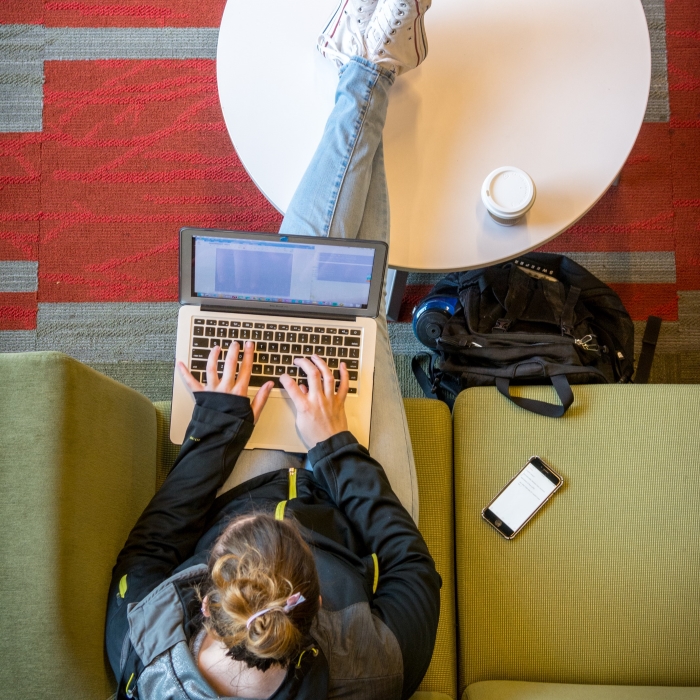
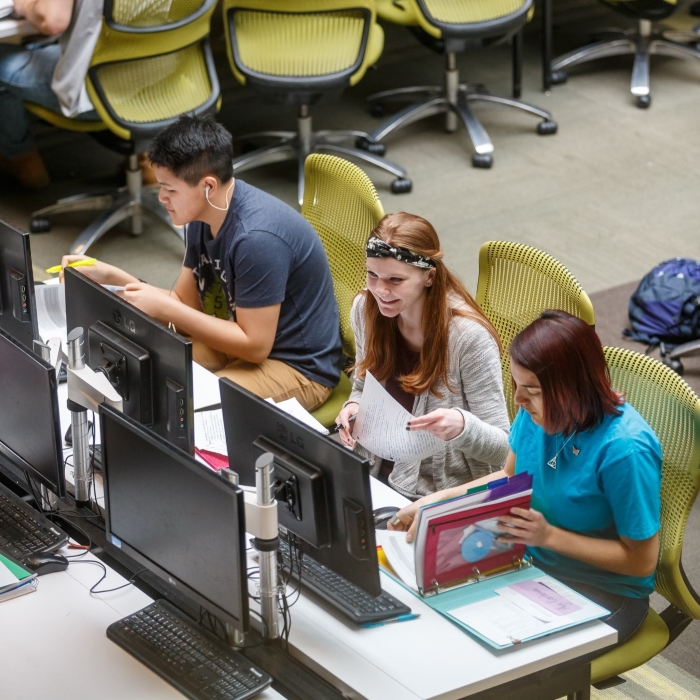
He worked his way up, specializing in access services—all the backstage management of staff, circulation, and programs—earned his Masters in Library Science in 2014, and arrived at UP in March 2022. But even though a lot of his work is behind the scenes, Martínez-García makes a point to pay forward the lessons he learned that day years ago when he took a leap of faith and a librarian was there to catch him. “I walk around and say hello to students. Some are looking at me like, ‘Who is this crazy guy?’ but it’s just to create that connection. I like to be that person who is making anyone who comes to the library, at any stage of their life—first-generation, first-year, international student—feel welcomed and feel the space is for them, that they belong there.”
That’s the crux, really, of what libraries are all about: a space that belongs to literally everyone, that everyone can use to access whatever information they seek, and librarians work hard to ensure every person has what they need—even if it’s just a boost of confidence—to access that information.
As anyone who’s used a library knows, the work comes in many forms. At the 110-year-old North Portland public library in a historically Black neighborhood just a few miles east of UP, a single day might find the librarians and library assistants teaching a senior citizen how to text, helping a bereaved parent understand their daughter’s life insurance policy, or connecting a houseless person to a shelter that still has beds that night. Then there are the usual tasks like reshelving books in the robust Black Cultural Collection, researching new titles to add, planning a community outreach event at the nearby park, and restocking the children’s area with bookmarks that offer guides to the colored tags on each book’s spine. Got a little one who’s just learning letters and sounds? Go for the yellow tags. Are your elementary school kids reading on their own? Zero in on the green. There’s even a bookmark titled “Every Child.” It’s not a guide to “which books,” but rather a gentle lesson about how reading together daily, even with a baby, can lay the foundation for self-confidence and academic success in the future.
If you think about it, everything libraries offer, even these bookmarks, serve to remove the barriers of entry into the world of information. And they are just one of the innumerable ways libraries, and the people working within them, live out the mission of providing equal access for everyone in their communities.
“Libraries ensure people have the access they need to be informed citizens,” says Annie Lewis, deputy director of Multnomah County Library (MCL). “That’s a critical part of being a member of society, and a fundamental part of our democracy.”
Let’s be honest, most of us don’t really think of the place where we check out sci-fi novels and how-to guides as perhaps the last bastion of American democracy. But libraries are repositories of books in only the strictest sense. In practice, they’re public forums of information, whether that information is found in a book, a film, a song, a computer, or a gathering of people. And librarians are not stern, shushing gatekeepers, but gate-openers, driven to help you find the information you seek, no matter what it is.
“We’re trained to think ‘yes,’” says Brittany Wade, library assistant at the North Portland library. “No matter what people ask, we will deliver a yes somehow.”
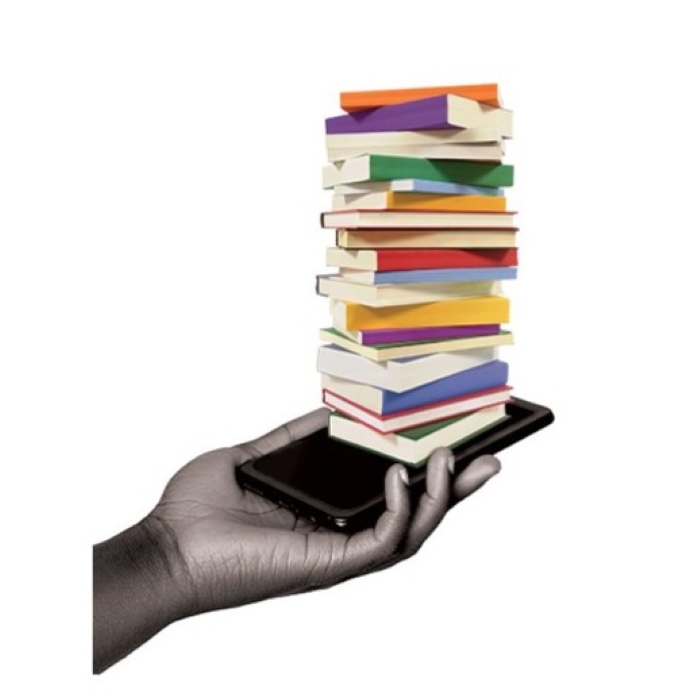
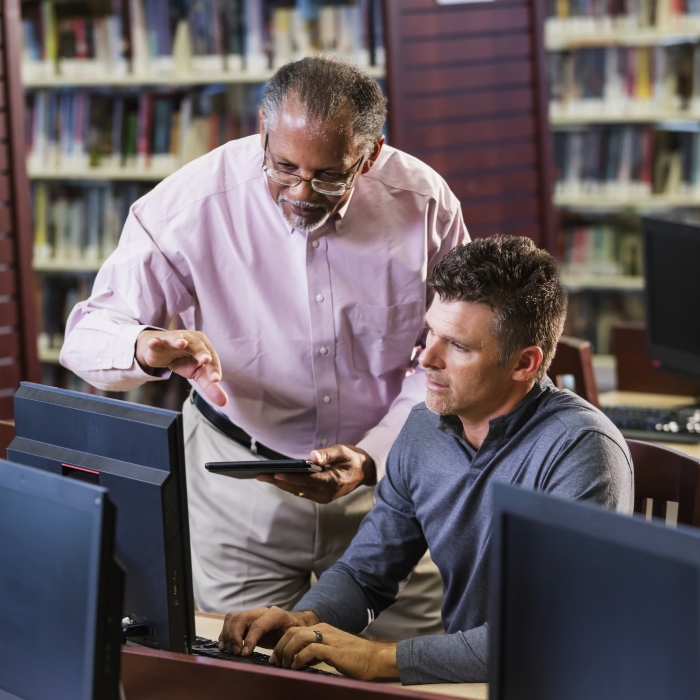
By the same token, that means never saying no—not to a book, not to a person—based on any grounds other than budget or behavior. Librarians are far more committed to equity and your right to free speech than, frankly, most of us are. In fact, these principles are the bedrock of the institution, written out in the American Library Association’s Bill of Rights way back in 1939, and they guide literally everything librarians do (which is a whole heck of a lot).
Rule number one in the ALA’s Bill of Rights? “Books and other library resources should be provided for the interest, information, and enlightenment of all people of the community the library serves. Materials should not be excluded because of the origin, background, or views of those contributing to their creation.”
Hence the ALA’s joyfully nose-thumbing Banned Book Week celebrations, awareness campaigns, and support services. Censorship is flat-out anathema to the institution.
“There are very active movements to challenge the materials that go into public libraries,” says Lewis. “There’s a politicization of certain topics that aren’t inherently political. But we have to consider the whole community, not a section of the community. And it is our responsibility to not censor materials. We’re ensuring we have representation for the many different perspectives and viewpoints that exist on a particular issue.”
Just as important are the critical thinking skills needed to evaluate those materials—especially considering the internet’s unrelenting stream of unreliable information. Librarians won’t withhold anything or tell people what to think, but as professional researchers, they do use their skills to teach their patrons how to sift the honest from the dishonest—and to think for themselves.
“Over the last several years the issue of fake news has heightened the importance of critical thinking and evaluating sources for potential bias, not taking anything at face value, and comparing your source with other sources,” says longtime UP librarian Stephanie Michel. “We teach students to ask themselves, ‘Do I actually believe this or am I triggered by the emotion? Can I verify this?’ We find that it’s a skill that needs to be taught.”
A related issue is confirmation bias, when a student has a particular point of view and wants to only find things that prove that opinion. “I’ve had students who had already written their paper and wanted to find sources to back it up,” Michel says. “We challenge them to think more broadly and think of research as the starting point and see where it can guide you.”
But not everyone has access to a university library—or education for that matter. Public libraries bridge some of that educational gap by offering digital literacy classes and compiling research databases of reliable resources that anyone with a library card can use.
Of course, a lack of education is just one of the more obvious barriers to fostering an informed citizenry. The marginalization of people based on age, race, culture, gender and sexual identity, economic status, and mental health can be harder to quantify but it plays a major role in keeping people from seeking out, and receiving, the information they need.
“A lot of the regulars who come in are elders who need one-on-one help,” says Wade, “or they’re houseless and need resource navigation, like how to get a job. We work with formerly incarcerated folks. For them, the knowledge gap is wide. When we see a disparity, we think, ‘What do we have in our system or what kind of partnership can we provide to fill those gaps?’”
That’s the mindset that gave rise to embedding crisis social workers in downtown Portland’s Central library in 2016. Now, every branch in the system can schedule a visit from a social worker who can address a patron’s immediate needs around hunger, shelter, and mental health resources. “This has the benefit of meeting people at their point of need,” says Lewis. “They may be in a state of crisis. If someone doesn’t have their basic needs met, how will they access the library’s services?” While, for instance, crime rates might cause most of us to talk about ways to lock people out, librarians never waver from their goal of bringing people in. Ensuring the safety of staff and patrons is both a top priority and, sadly, an increasing challenge, but library staff uphold the belief that if you behave, you belong.
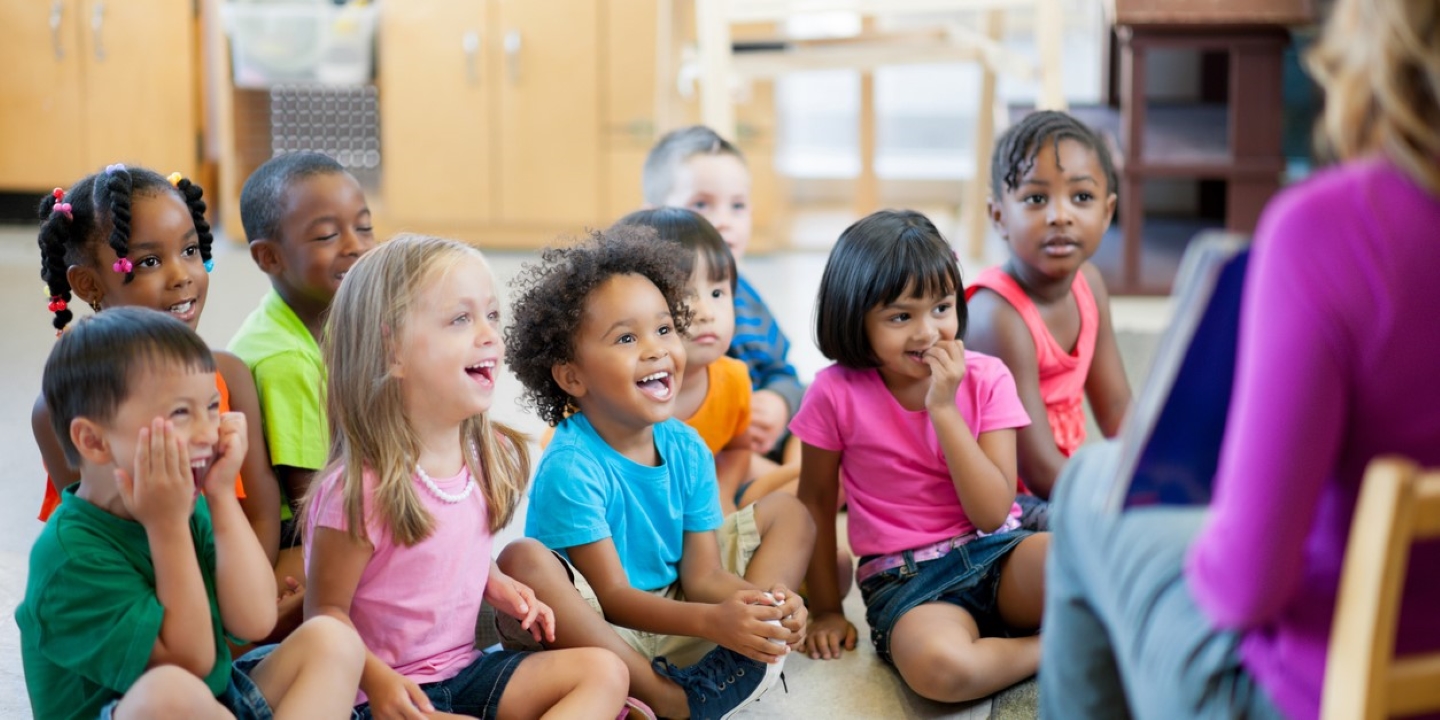
To help understand the specific and ever-evolving needs of the populations they serve, librarians are constantly conducting research. At UP, this manifests in library liaisons who specialize in specific subjects and stay up to date on the latest resources in that field. They’ll visit classes, help students one-on-one, create online guides with curated resources, and even help faculty select books. “When we’re helping students with research, we try to work in our liaison areas as much as possible,” says Michel. “We’ll get a copy of the syllabus and assignments to find out what the students need to learn to be successful in their class.”
But because public libraries work on a much larger scale, they “use census data that provides demographic data layered with race, ethnicity, and poverty rates, that help us understand more about the communities in a particular two-mile radius,” says Lewis. MCL uses the data to determine the programs, services, and the staff at each branch. “We hire staff that have particular language or cultural skills that are needed among the community to better serve and be receptive to their needs,” says Lewis. These are called KSAs—Knowledge, Skills, and Abilities—and it’s why the Woodstock branch has storytime in Cantonese and the Capitol Hill branch has Somali language resources and staff members who speak Somali.
Constant outreach to the community through visiting schools, parks, and community centers provides library staff with even more valuable data, the humanistic kind you can’t get from a census survey. But outreach isn’t just about learning what the community needs, it’s also about teaching people how to access the wealth of opportunities that their library provides for free. “A lot of what we do is about relationship building,” says Wade. “You won’t get people back in unless you put in the engagement.”
Diane Sotak, who has been a UP librarian for 21 years, says this kind of engagement work with students is a big part of her job at the Clark Library. “They have the notion that the library on campus is an academic space to concentrate on their studies, but it’s harder to reach them with the message there’s so much more we are providing.”
Sotak coordinates outreach to students and the creation of print, video, and digital guides on anything and everything that can possibly help students access the information and services the Clark Library offers, things like subscriptions to academic journals, resources, and databases, not to mention laptops, cameras, and A/V equipment they can borrow whenever they need. She even includes the absolute basics, like how to find a book on the shelf. “We’re constantly challenging our assumptions,” she says. “For a while we could assume all students had a level of experience with finding sources for assignments. But there are a bunch of high schools that don’t have their own library. I can’t assume anymore that all students have experience even with their public library.”
Sotak is constantly tweaking her approach as the population of UP students changes. “When I first started 21 years ago, it was about creating fliers for the bulletin boards. Now it’s memes on Instagram.” And she relies on student workers to bring something of a Gen Z KSA to the job. “Students really gravitate to those peer tutors and ambassadors. Hearing from them really carries a lot of weight. It’s like, ‘here is someone who’s living it and expressing it in our language.’”
Considering how each of us uses and interacts with libraries in highly personal ways, it’s almost magical how one institution can meet the unending, ever-changing, and incredibly wide-ranging needs of every unique individual it serves. But it’s not magic, it’s the people who work in libraries and the many ways they dedicate themselves to ensuring equal and equitable access to the power of information.
“Working in a library is like opening the door for people to a new world, to new goals, to a space that is going to facilitate their path in life,” says Martínez-García. “Those are things that keep us going—knowing that every day is going to be different, and every day we’re going to be making a difference.”
DANIELLE CENTONI works in UP’s marketing and communications department.
More Stories
A Reading Room of Her Own
How an early struggle with words—along with two heroic reading specialists—paved the way for a young educator’s teaching philosophy.
- Story by Claire Breiholz